blog»Business Strategy»Logitech Marketing Strategies: From Functionality to Lifestyle Leadership

Logitech Marketing Strategies: From Functionality to Lifestyle Leadership
2025/01/14
You can read this article in about 15 minutes
Introduction
Logitech has evolved from a tech brand focused on functionality to a lifestyle leader that resonates with gamers, creators, and professionals alike. Over the years, the company has redefined how it markets its products, emphasizing style, sustainability, and customer-centric innovation.
From collaborating with gaming communities to promoting eco-friendly designs, Logitech’s marketing strategies showcase how a brand can adapt to changing consumer expectations. By blending product performance with storytelling, Logitech has created a strong emotional connection with its audience.
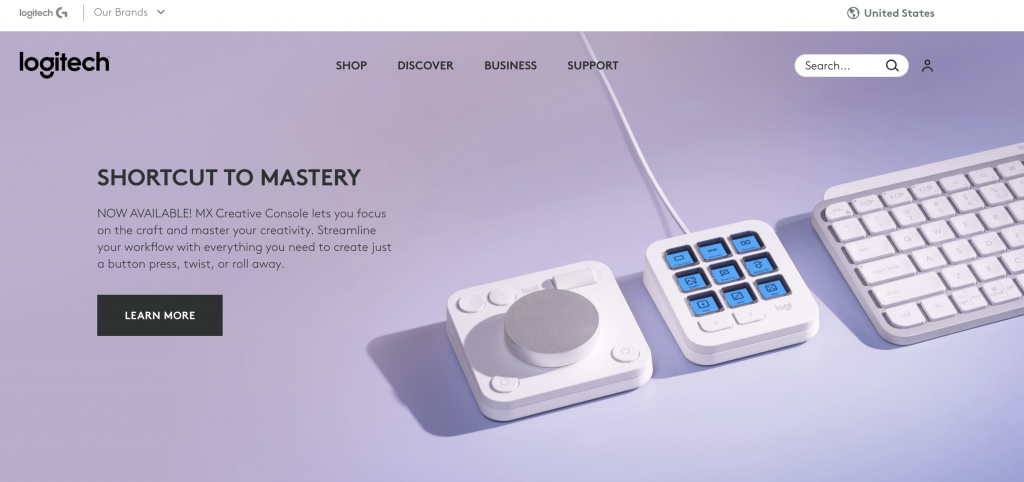
In this article, we’ll explore key Logitech marketing strategies and uncover lessons e-commerce marketers can apply to their own campaigns. Let’s dive into the tactics that made Logitech a standout in the consumer electronics space.
1. Embracing Lifestyle Branding
Logitech has transformed its image by positioning its products as part of a modern, stylish lifestyle rather than just functional tools. This shift is evident in product lines like the Logitech MX Series, designed for professionals seeking both performance and elegance, and the Logitech G Series, catering to gamers who value both style and technology.

The company’s marketing emphasizes how its products fit seamlessly into customers’ lives. Ads often highlight sleek designs, vibrant colors, and ergonomic features, appealing to both aesthetics and functionality. By focusing on lifestyle, Logitech has widened its appeal beyond tech enthusiasts to include creative professionals, gamers, and everyday users.
What you can learn:
- market the experience: Show how your products enhance the customer’s daily life rather than just highlighting features.
- appeal to emotions: Use visuals and messaging that align with the aspirations of your target audience.
Logitech’s move toward lifestyle branding demonstrates the power of connecting products to customers’ identities, making them more than just tools—they’re part of a way of life.
2. Logitech G: Tapping into Gaming Communities
Logitech’s gaming brand, Logitech G, has successfully carved out a niche by building strong connections with gaming communities. Instead of solely focusing on product specs, Logitech G aligns its marketing with the culture and passion of gamers.
Key to this success is partnerships with esports teams and streamers. For example, Logitech G collaborates with global gaming teams like T1 and influencers who showcase its products in action during tournaments and streams. These partnerships help Logitech G build credibility and stay relevant in a highly competitive market.
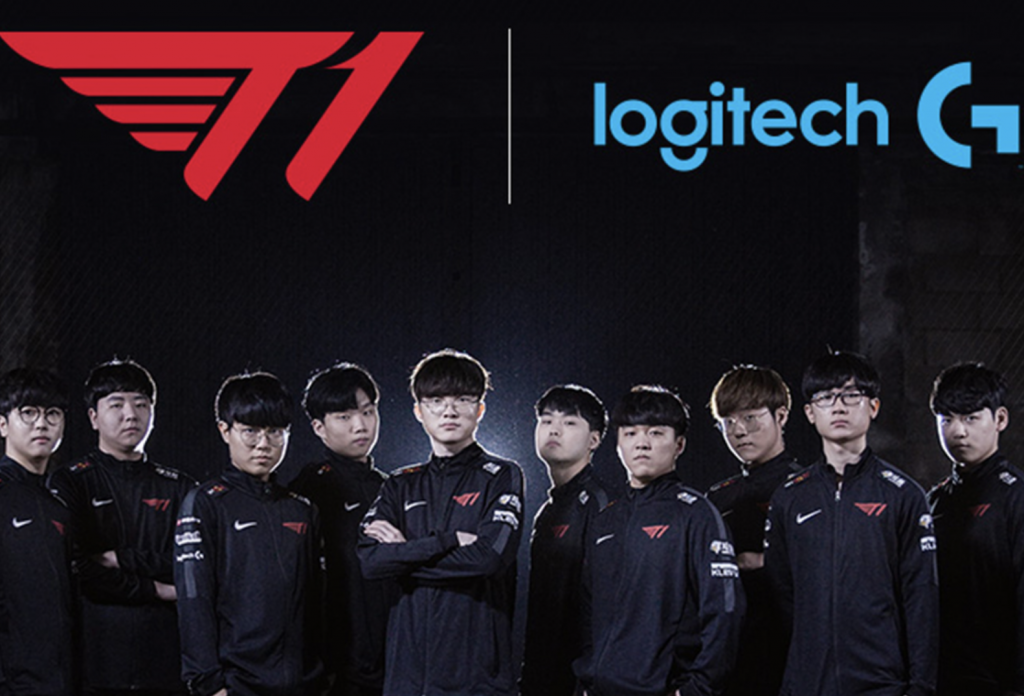
The brand also invests in immersive campaigns tailored to gamers. For instance, they launched the “Play to Win” campaign, which celebrates gaming as both a skill and a lifestyle, blending high-quality visuals with authentic messaging that resonates with players.
What you can learn:
- build trust through partnerships: Collaborate with niche communities or influencers that align with your brand.
- celebrate your audience: Create campaigns that highlight the culture and passion of your target demographic.
Logitech G’s focus on authenticity and community engagement has made it a go-to brand for gamers, proving that understanding your audience is essential for success.
3. Eco-Friendly Innovations and Marketing
Logitech is taking a bold stance on sustainability, making it a key part of both its product development and marketing strategies. The company has committed to using recycled materials in its products, reducing carbon emissions, and achieving carbon-neutral certification across its operations.
Marketing campaigns like “Design for Sustainability” highlight these efforts, showcasing Logitech’s dedication to eco-conscious design. For example, its packaging emphasizes recyclability, and its website educates customers on the environmental benefits of its products. By integrating sustainability into its messaging, Logitech appeals to modern consumers who prioritize eco-friendly choices.
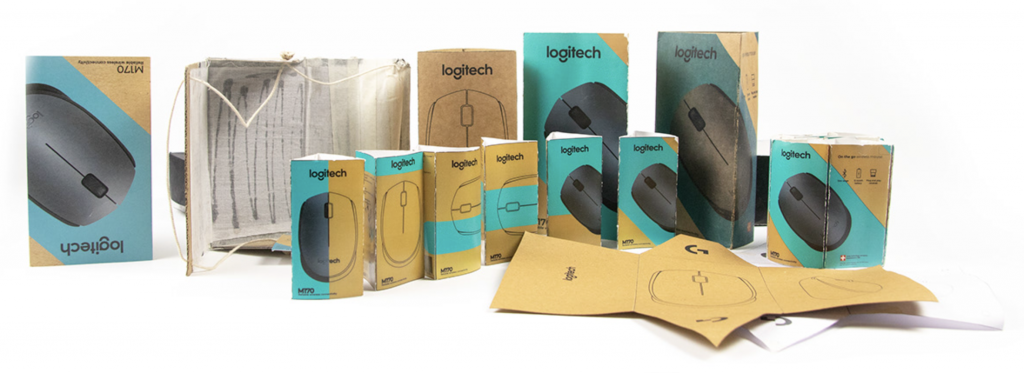
What you can learn:
- align with consumer values: Highlight sustainability efforts to attract eco-conscious buyers.
- make sustainability visible: Use packaging, product design, and campaigns to showcase your environmental initiatives.
Logitech proves that sustainability isn’t just a buzzword—it’s a way to build trust and loyalty while staying ahead of consumer expectations.
4. Leveraging Influencer Marketing Across Niches
Logitech has mastered the art of influencer marketing by collaborating with creators across diverse niches. From tech reviewers and gamers to musicians and productivity enthusiasts, the brand ensures its products reach the right audiences.
For example, Logitech works with popular YouTubers like MKBHD (Marques Brownlee) to highlight the features of its latest tech gear. In the gaming space, Logitech G partners with esports streamers to showcase gaming peripherals in action. These collaborations not only increase product visibility but also build trust, as audiences value recommendations from creators they follow.
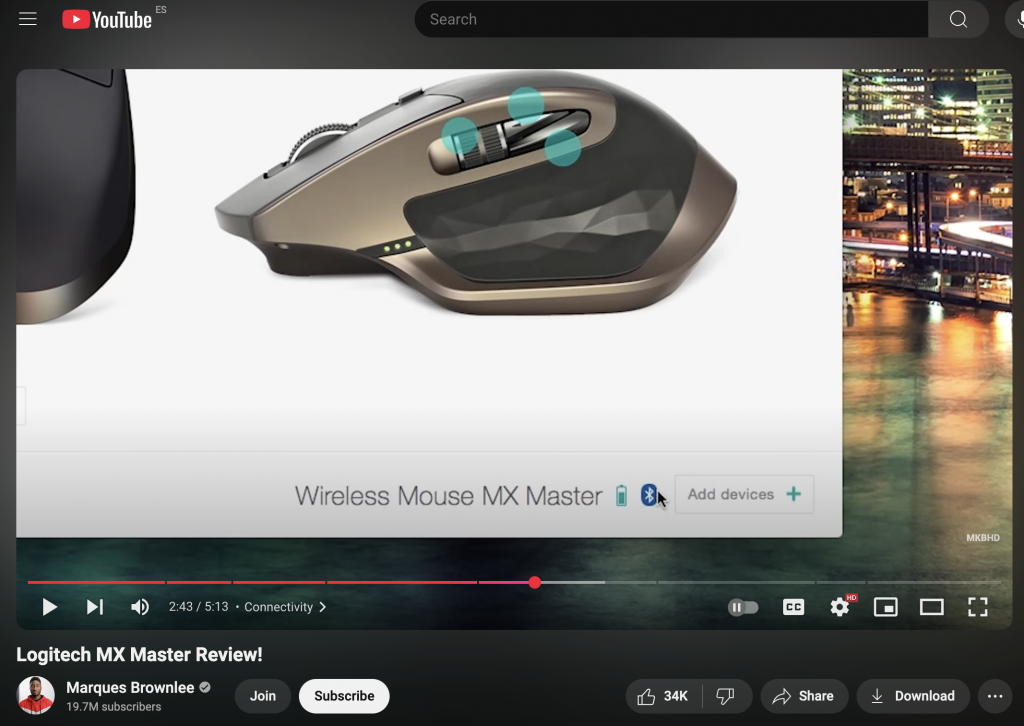
Logitech also tailors its influencer partnerships to specific product lines. For instance, musicians promote Logitech’s audio products, while remote work advocates highlight its ergonomic keyboards and webcams.
What you can learn:
- diversify your influencers: Collaborate with creators across multiple niches to reach varied audiences.
- align influencers with product lines: Choose influencers whose content naturally connects with your product’s use case.
By leveraging influencer marketing, Logitech extends its reach and builds credibility across multiple customer segments, making it a versatile and effective strategy.
5. Targeting Hybrid Work Trends
Logitech has positioned itself as a leader in tools for remote and hybrid work. As work environments evolved, the company adapted its marketing to highlight products that make working from home seamless and productive.
Campaigns for products like Logitech webcams, headsets, and ergonomic keyboards emphasize comfort, efficiency, and professional-quality performance. Ads often feature relatable scenarios, like virtual meetings or home office setups, connecting directly with remote workers’ needs.

Logitech’s messaging also underscores reliability and ease of use, ensuring customers see its products as essential for modern workflows. By addressing the growing demand for hybrid work solutions, Logitech has successfully carved out a niche in a highly competitive market.
What you can learn:
- address emerging trends: Adapt your messaging to align with current consumer needs, like remote or hybrid work.
- focus on practicality: Highlight features that solve real-world problems and make your products indispensable.
By tapping into hybrid work trends, Logitech demonstrates the power of adapting to market shifts and positioning products as essential tools for a changing world.
6. Experiential Marketing and Product Demos
Logitech understands the value of letting customers experience its products firsthand. The brand frequently uses experiential marketing and product demos to showcase the quality and functionality of its offerings.
At major tech events like CES (Consumer Electronics Show), Logitech creates interactive booths where attendees can test its products in real-world scenarios. For example, visitors might try a Logitech G gaming mouse in a competitive setup or experience the clarity of a Logitech webcam during a simulated video call. These hands-on experiences leave a lasting impression and build confidence in the product.
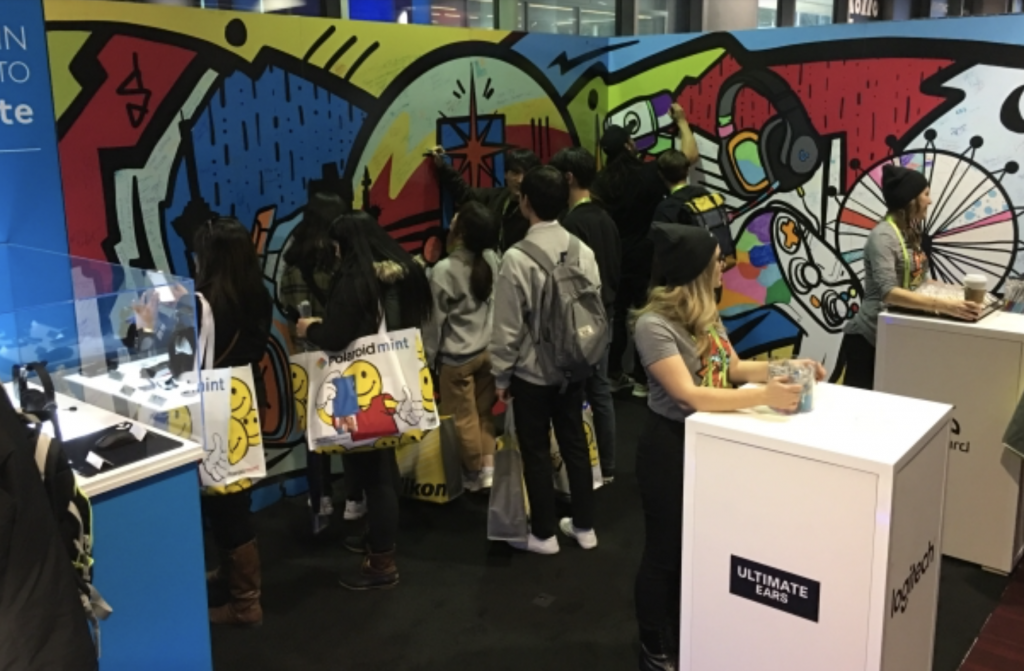
Logitech also extends this strategy to virtual spaces. Online product launches and video demos provide an engaging way for remote audiences to explore features, ensuring accessibility to a global market.
What you can learn:
- let customers experience your products: Use events, online demos, or interactive tools to showcase product quality and functionality.
- create memorable experiences: Focus on hands-on or immersive activities that leave a lasting impact.
Experiential marketing allows Logitech to connect with its audience in a meaningful way, ensuring its products stand out in a competitive landscape.
Conclusion
Logitech’s marketing strategies show how a brand can successfully evolve by embracing innovation, lifestyle branding, and customer-centric approaches. From building strong connections with gaming communities to addressing hybrid work trends, Logitech continues to stay ahead of the curve.
Key Takeaways:
- Lifestyle branding matters: Position your products as part of your customers’ identity, not just functional tools.
- Engage niche communities: Collaborate with influencers, gamers, or other groups that align with your brand.
- Highlight sustainability: Eco-friendly initiatives can resonate deeply with modern consumers.
- Adapt to trends: Stay relevant by addressing emerging needs, like hybrid work or gaming.
- Create immersive experiences: Use experiential marketing to showcase your products and leave a lasting impression.
Logitech’s journey proves that combining innovation, community engagement, and customer focus can turn a brand into an industry leader. Marketers can take inspiration from these strategies to create impactful campaigns and build lasting connections with their audiences.